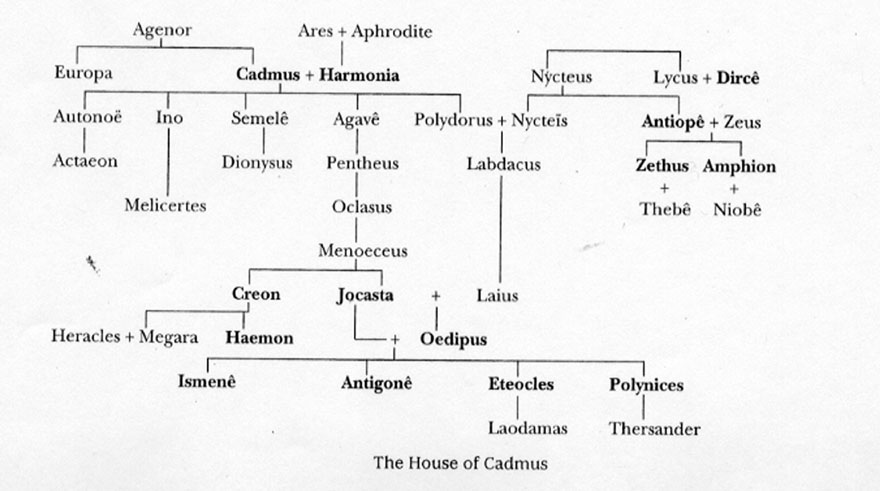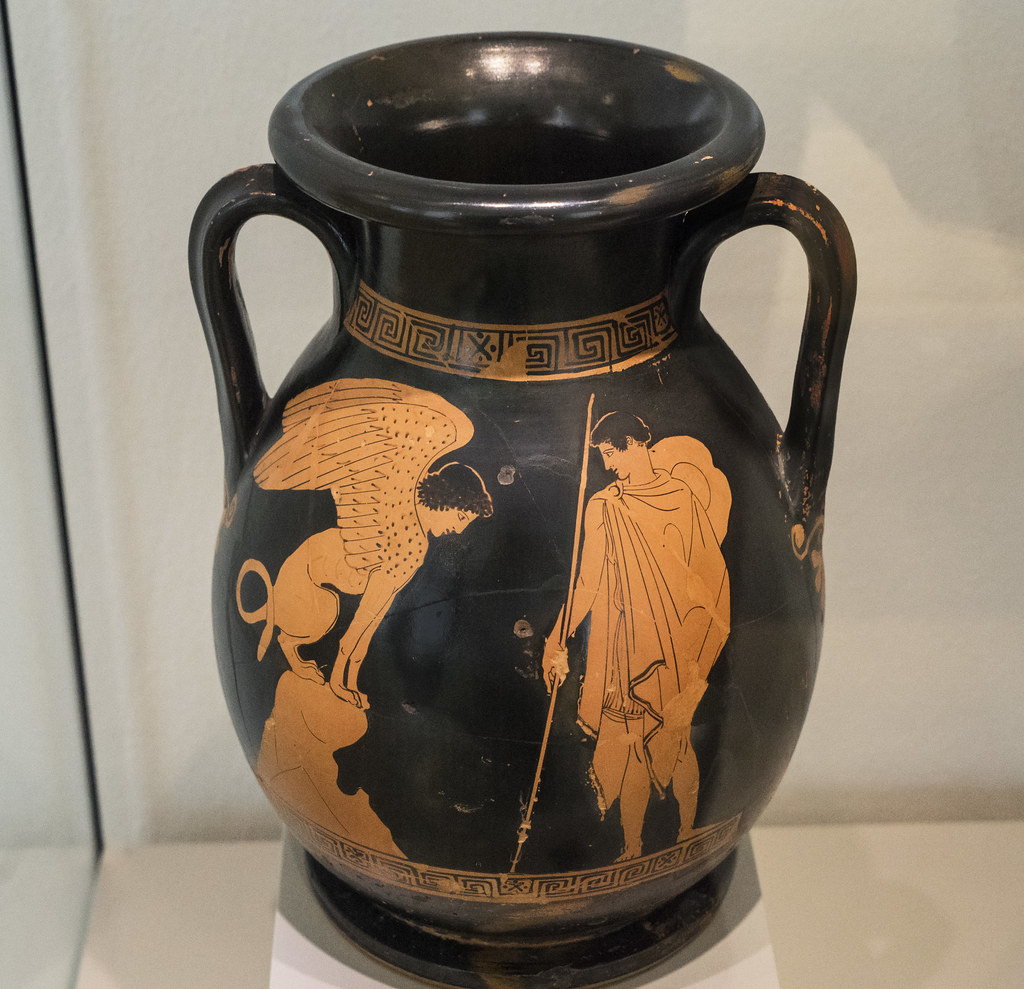In this episode, we discuss the life, theatrical innovations, and tragic works of the second great Athenian playwright, Sophokles; and the historical context and major themes of his seven surviving plays, which include Antigone, Ajax, Oidipous Tyrannos, Women of Trachis, Philoktetes, Elektra, and Oidipous at Kolonos
497 BC - Sophocles is born
479 BC - 18-year-old Sophocles is chosen to lead the paean (a choral chant to a god), celebrating the Greek victory over the Persians at the Battle of Salamis
ca. 475-470 BC - Sophocles competes in his first Dionysia (unknown work)
468 BC - Sophocles wins his first victory at the Dionysia (unknown work) over Aeschylus; unusual in that Kimon and the other strategoi served as judges; Aeschylus and Sophocles dominate the dramatic competitions as rivals for the next decade
456 BC - Death of Aeschylus; Sophocles becomes preeminent playwright in Athens
443-442 BC - Sophocles served as one of the Hellenotamiai, or treasurers of Athena, who managed the finances of the city and the empire during the political ascendancy of Pericles
ca. 442-441 BC - Euripides wins his first victory at the Dionysia (unknown work); Sophocles stages trilogy with Antigone and Ajax (his oldest surviving plays)
441-440 BC - Sophocles, as one of the ten strategoi, served in Athens' campaign at Samos
431 BC - Aeschylus' son, Euphorion, wins first prize at the Dionysia (unknown work); Sophocles places second (unknown work); Euripides places third (trilogy with Medea)
429 BC - Sophocles stages trilogy with Oedipus Rex and takes second place; defeated by Aeschylus' nephew, Philokles (unknown work); third place is unknown
ca. 425-420 BC - Sophocles stages trilogy with Women of Trachis
420 BC - After Asklepios is introduced from Epidauros into the city of Athens, Sophocles welcomes and set up at his house an altar for the image of the god, in his guise as a serpent; for this, after his death, he was worshipped at a hero shrine on the western slope of the Acropolis, where he was given the posthumous epithet, Dexion, meaning "the Receiver"
413 BC - Sophocles is elected as one of the probouloi, or "commissioners," who responded to the catastrophic destruction of the Athenian fleet in Sicily
409 BC - Sophocles stages trilogy with Philoctetes
ca. 409-406 BC - Sophocles stages trilogy with Electra
Winter 406/5 BC - Sophocles dies in Athens
401 BC - Sophocles' grandson (also named Sophocles) posthumously stages trilogy with his last completed and final surviving play, Oedipus at Colonus
Primary Sources:
Text/Sophocles' Antigone
Text/Sophocles' Ajax
Text/Sophocles' Oedipus the King
Text/Sophocles' The Trackers (fragmentary satyr play)
Text/Sophocles' The Women of Trachis
Text/Sophocles' Antigone
Text/Sophocles' Ajax
Text/Sophocles' Oedipus the King
Text/Sophocles' The Trackers (fragmentary satyr play)
Text/Sophocles' The Women of Trachis
Supplementary Resources (Videos, Photos, Other Podcasts)
Video/Fate in Sophocles' Theban Tragedies (Millenial Classicist)
Video/Miasma in Sophocles' Oedipus the King (Millennial Classicist)
Video/Irony in Sophocles' Oedipus the King (Millennial Classicist)
Video/Hamartia in Sophocles' Oedipus the King (Millennial Classicist)
Video/Recognition in Sophocles' Oedipus the King (Millennial Classicist)
Video/Miasma in Sophocles' Oedipus the King (Millennial Classicist)
Video/Irony in Sophocles' Oedipus the King (Millennial Classicist)
Video/Hamartia in Sophocles' Oedipus the King (Millennial Classicist)
Video/Recognition in Sophocles' Oedipus the King (Millennial Classicist)
Recommended Podcast Episodes:
***Literature and History - Sophocles' Antigone
***Myths and Legends - Oedipus: Motherboy
***Myths and Legends - Oedipus: Team Spear It
***MythTake - Heroes at Home: Deianara
***Myths and Legends - Oedipus: Motherboy
***Myths and Legends - Oedipus: Team Spear It
***MythTake - Heroes at Home: Deianara








No comments:
Post a Comment